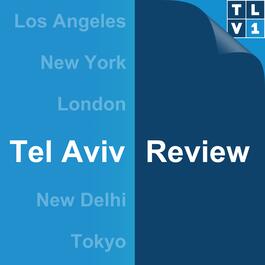
Tel Aviv Review
Showcasing the latest developments in the realm of academic and professional research and literature, about the Middle East and global affairs. We discuss Israeli, Arab and Palestinian society, the Jewish world, the Middle East and its conflicts, and issues of global and public affairs with scholars, writers and deep-thinkers.
Show episodes
Adam Kirsch, poet, critic and editor at the Wall Street Journal, discusses his widely debated book, On Settler Colonialism: Ideology, Violence and Justice. The settler-colonialism prism, especially in the wake of October 7, is a textbook example of the use and abuse of academic theories for political ends – how and why
Guy Miron, professor of modern European Jewish history at the Open University of Israel, and the director of the Center for the Study of the Holocaust in Germany at Yad Vashem and a board member of the Leo Baeck Institute in Jerusalem, discusses his most recent book, Space and Time Under Persecution: The German-Jewish
Dr Ido Yahel, a postdoctoral fellow at Tel Aviv University's Moshe Dayan Center for Middle Eastern and African Studies, is a historian of modern Syria. An ethnic hodgepodge, was the decades-long stability provided by the brutal Assad regime an exception rather than the rule? Can Syria reinvent itself under the leadersh
Prof. Jonthan Dekel-Chen, Rabbi Edward Sandrow Chair in Soviet and East European Jewry at the Hebrew University and the academic chairman of the Nevzlin Center for Russian and East European Jewry, takes a long view on the history of Jews in Russia and its past and present territories, from the turn of the 20th century
Dr Amit Levy, a postdoctoral fellow at the University of Haifa's Department of Israel Studies, discusses his book, A New Orient: From German Scholarship to Middle Eastern Studies in Israel.
The October 7 events seemed, initially at least, to put the government's plans for a judicial overhaul on the back burner. But under the guise of wartime emergency regulations, the government has slipped back to its old habits. As Prof. Suzie Navot, a scholar of constitutional law and Vice-President of the Israel Democ